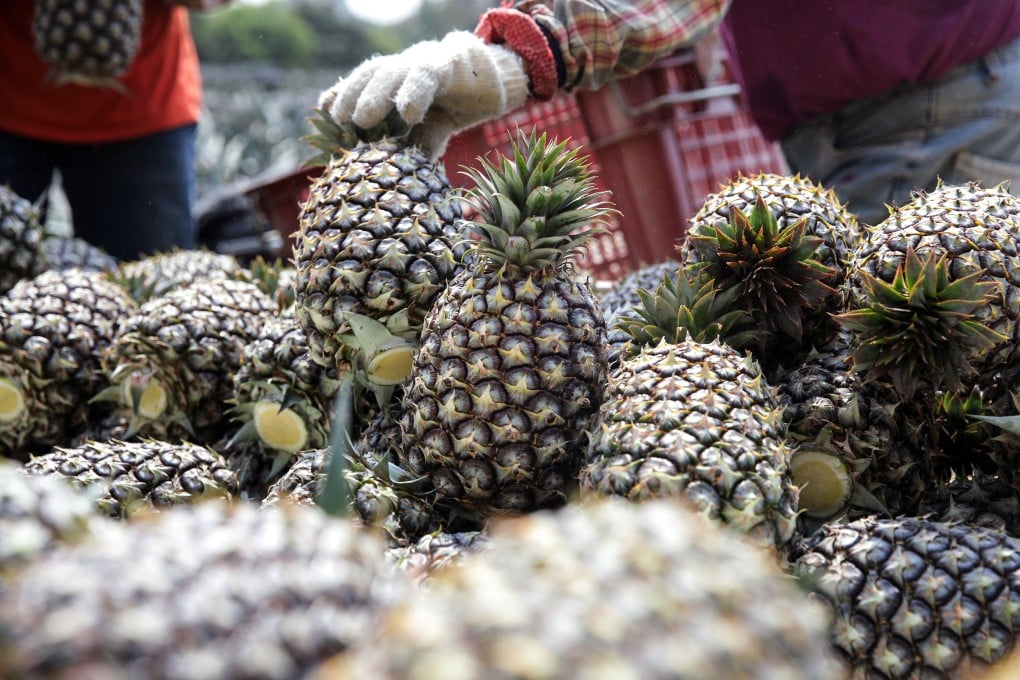Advertisement
Abacus | Pineapple wars may show Beijing’s real motives in the South China Sea
- The actions of China, as its farmer population ages, are likely more about food security than empire building
- But as China realigns its trade relationships, the Asia-Pacific looks an increasingly dangerous place
Reading Time:5 minutes
Why you can trust SCMP
16

TRADE ROUTES
A long time ago in a land far, far away, a large ship that had travelled a great distance slipped quietly into a perfect natural harbour in paradise. Her captain got off, stuck a flag in the sand and said “this is ours”, and in the process seized rich deposits of natural resources, food and water. He was soon followed by a fleet of ships, military equipment and hordes of invaders. The evil empire had once again expanded its territory.
This is exactly what happened in April 1770 when captain James Cook first arrived in Australia on the HMS Endeavour, to be quickly followed by the British First Fleet of 11 ships and 1,500 people under the command of captain Arthur Phillip to colonise the place.
Advertisement
At the time there wasn’t anyone tough enough to say, “you can’t do that!”, but times have changed and one definitely cannot go plant a flag today without a backlash.
Soon after Australia was colonised, the British started to ship marine products, wood and wool from the colony. By the late 1800s even frozen lamb was being sailed back to the British Isles, followed by grain, dairy and other agricultural products. Australia became key for the old country’s food security.

01:50
Pineapple bumper harvest hailed in China as Beijing bans imports of the fruit from Taiwan
Pineapple bumper harvest hailed in China as Beijing bans imports of the fruit from Taiwan
I believe China’s move into the South China Sea, through which a third of global shipping passes, is as much about food security as anything else. And much less to do with the expansion of its empire than is commonly claimed. It must grapple with a rapidly ageing population, with many of the people farmers. If that sounds familiar, it’s because Japan faced the same demographic challenge, and today has to import 64 per cent of what the country consumes. Little wonder, then, that Chinese leaders were tempted by the rich stocks of fish in southern waters. The venture was somewhat legitimised after Chinese firms were invited to set up in coastal Australia by leasing the port of Darwin and Papua New Guinea started to accept investment in Daru. The two spots are on either side of the Torres Strait, a stretch of water crawling with lobsters.
Advertisement
Select Voice
Choose your listening speed
Get through articles 2x faster
1.25x
250 WPM
Slow
Average
Fast
1.25x
